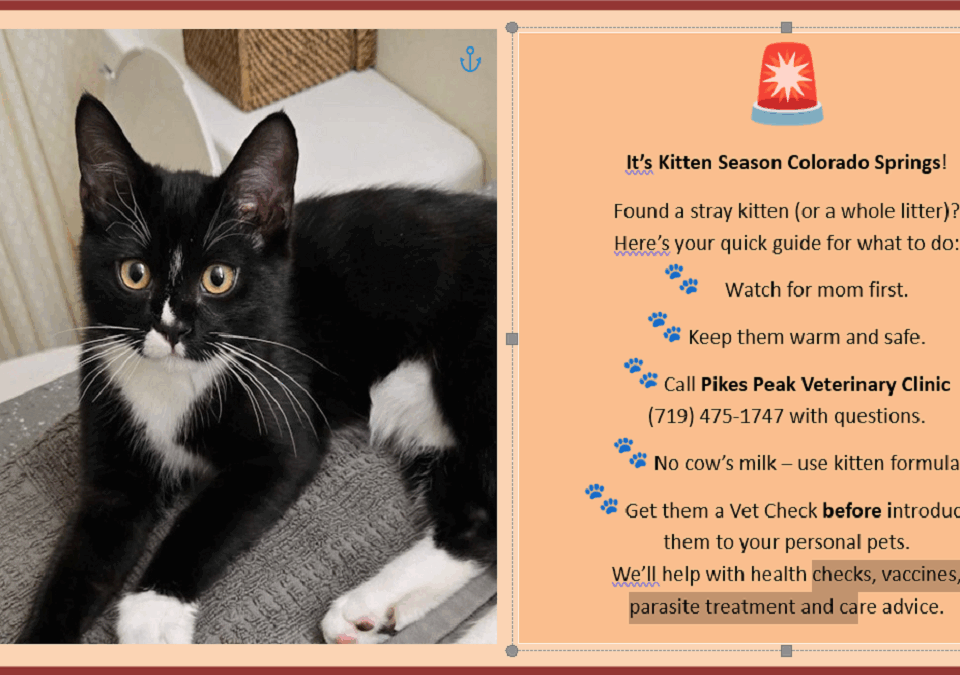
Tolliver’s Fund Now Takes Tax-deductible Donations
February 9, 2022
Breed Specific: Bernese Mountain Dogs – Gentle Giants
March 5, 2022Ask Pikes Peak About the Latest Advances in Dermatology!
Written by our laser and physical therapy expert, Heather
The PPVC team recently spent time learning about the latest dermatology research, treatments and products from Zoetis guest speaker Ashley Weber. Convenia, Apoquel, and Cytopoint have been proven to relieve both chronic and acute cases of itching in many dogs. Your veterinarian can help you pinpoint which one might be appropriate based on the cause of your dog’s itch. These drugs could be combined over time to give the best therapeutic benefit.
Convenia and Cytopoint are injections that carry a long-lasting effect. Many pet parents appreciate the advantage of injections vs. daily oral medications. Convenia is an antibiotic that treats skin infections (and other infections). For true allergic itchiness, this discussion centered more around the use of Cytopoint and Apoquel. Cytopoint is a monoclonal antibody medication that treats itching. Apoquel is an oral medication that is an FDA approved immune suppressant that controls allergic itch in dogs. You can view more information about Apoquel by clicking this link.
Apoquel, the oral medication is used for both short and long term cases of itching. It is appropriate for dogs 12 months and older and starts working within four hours. Sometimes, dogs with the chronic disease of Atopic Dermatitis will do well for many months and then experience a flare up. These periodic flares are considered normal and are often a result of a new case of flea bites or another environmental issue such as a high pollen count. Once parasites and infections are ruled out, another treatment of either Apoquel or Cytopoint can resolve the flare-up. Cytopoint, the injection, is good for dogs that are difficult to “pill” and works in all ages–including those with comorbidities. It is beneficial for pet parent owners that are seeking non-drug therapy.
An important concept of treating a pet with the Cytopoint injection is that some dogs are partial responders while others resolve from one injection. A “Cytopoint Additional Injection” Study shows that in dogs who are partial responders and are given a series of three injections, 93% successfully resolve their itchiness at the the third injection. Studies also found that the use of Cytopoint reduced 60% of other prescriptions by the third month of treatment. For these reasons, it is important for pets to have a recheck exam four weeks after the first Cytopoint injection to determine if their symptoms are resolved or if they need two more injections.
Zoetis feels strongly that it is important to make sure the human-animal bond is not disrupted while treating medical conditions. When pet parents don’t have to struggle with their pet on a daily basis to medicate them, the bond remains strong. Ashley pointed out that chronic cases of itching can stress this bond, as well. For example, when a pet first starts to scratch, the pet parent owner feels a lot of sympathy. After trying at-home remedies that don’t work, they develop a heightened level of frustration. This is where the veterinary team can start to help. They can immediately use their tools to stop the itch. Often a dose of Apoquel can quickly calm an itch down. However, the problem solving process does not end there.
Once the itch is stopped, it is the veterinarian’s task to rule out parasites, treat skin infections (this is where antibiotics like Convenia play a role), and consider the need for starting a food trial. We start by making sure the itching isn’t caused by fleas or ticks because the last thing they want to do is run a food trial when it could just be a simple fix by taking care of a few parasites! Some animals are actually allergic to fleas and will itch everywhere even from having just one bite.
Zoetis has made it easy for pet parents to understand the use of these medications and track the itching. They have designed a brochure that helps to rate itching from normal to extremely severe. If you wanted to start before your appointment, you can access the brochure by clicking here. It’s also helpful to track your dog’s progress with this great printable tool – The Itch Tracker.
A quality-of-life (QOL) study was done by Zoetis that examined both the pet parent owner’s QOL as well as their pet’s. Sixty-eight dogs were studied from clinical practices. Pet parents used a visual score to track the results. All of these dogs started with moderate to severe itching. At day 91 of treatment with Cytopoint, all were considered normal with their itching very well controlled. The important part of the study was that the QOL for the pet parents went up 104% after just one week of treatment and continued to improve. View this study here.
Safety of drugs is always a hot-button issue. We discussed the clinical trials that were done before these drugs were approved. They have been used reliably and safely by clinics and their clients for many years.
While planning for routine veterinary care can be relatively easy, people are often not prepared for a pet who suddenly needs examinations and medication for a sudden or ongoing case of itching. Zoetis created a way to help people with some of those costs: The Zoetis Pet Rewards system. This earns our clients money back on a “credit card” that can be spent anywhere in our veterinary hospital. It can be used for Convenia, Cytopoint, and Apoquel and many other Zoetis medications. Go to the link above to sign up today!







2 Comments
It’s cool that you could figure out if your dog has an underlying illness based on its skin. I want to adopt a puppy that’ll help me keep an active lifestyle! Now that I know that dogs are also susceptible to parasites, I’ll probably keep your idea in mind and seek a veterinarian’s help when this happens.
It’s possible the dog you adopt(ed) won’t have skin issues, but good to know you can help him or her if so! 😉